Syria's Druze vow to free women and children kidnapped by IS
- Published
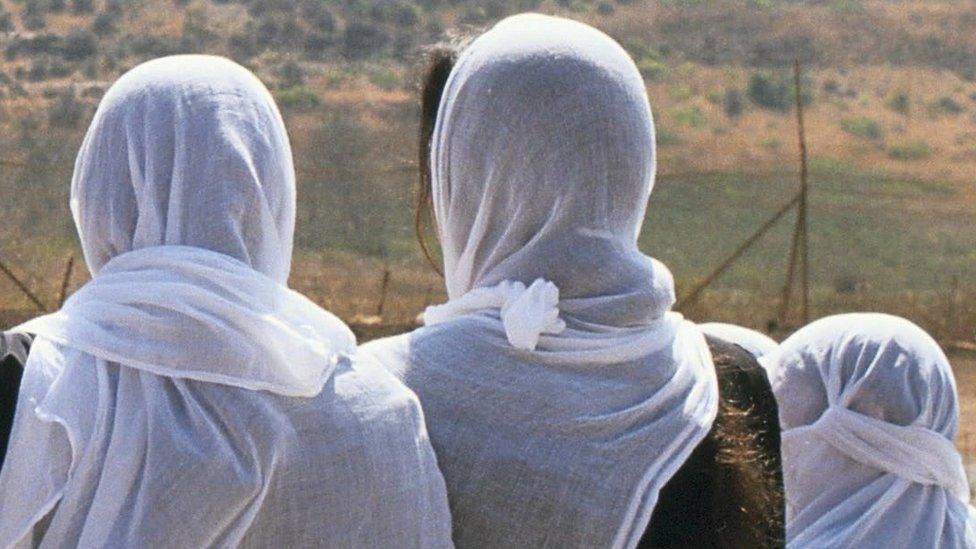
The Druze are the third-largest religious minority in Syria
One religious minority has been largely spared the horrors of Syria's seven-year civil war: the Druze.
Most live in the rugged Jabal al-Druze region, in the south-western province of Suweida. It has been mostly calm except for some isolated attacks. However, that all changed two weeks ago.
On the night of 25 July, a highly co-ordinated assault by the jihadist group Islamic State (IS) left more than 200 dead, most of them civilians.
IS militants also kidnapped 13 women, 17 children and a 19-year-old man, who was later killed.
On Thursday, the jihadists phoned the family of one of the women to say that she had died because of ill health. The fates of the other hostages are unknown.
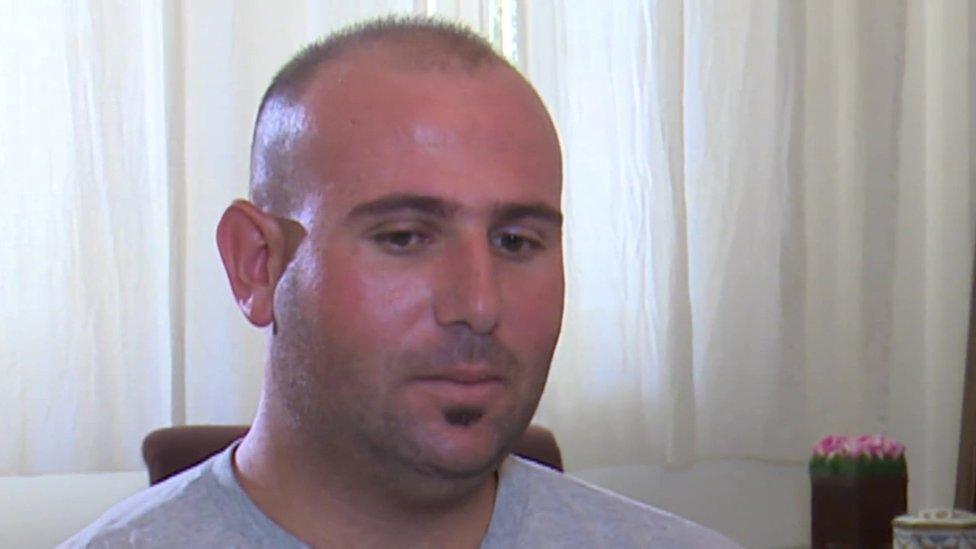
Fareez Abu Ammar could not return to Syria for his mother's funeral
"In the end we will get them back, whether martyred or alive," said Fareez Abu Ammar, a 30 year old from Suweida who lost his mother, uncle and many other close relatives in the attack.
His sister-in-law and her three children - sons Rafat and Yorub, and daughter Lana - are among those who were kidnapped.
Abu Ammar lives in Beirut, in neighbouring Lebanon, and he could not return to Suweida to attend his mother's funeral because he is wanted by the Syrian authorities for avoiding compulsory military service.

Who are the Druze?
The Druze religion arose from Ismailism, a branch of Shia Islam, in the 11th Century.
It takes its name from Mohammed bin Ismail al-Darazi, a mystic from Central Asia who regarded the third Fatamid caliph of Egypt, al-Hakim, as an incarnation of God.
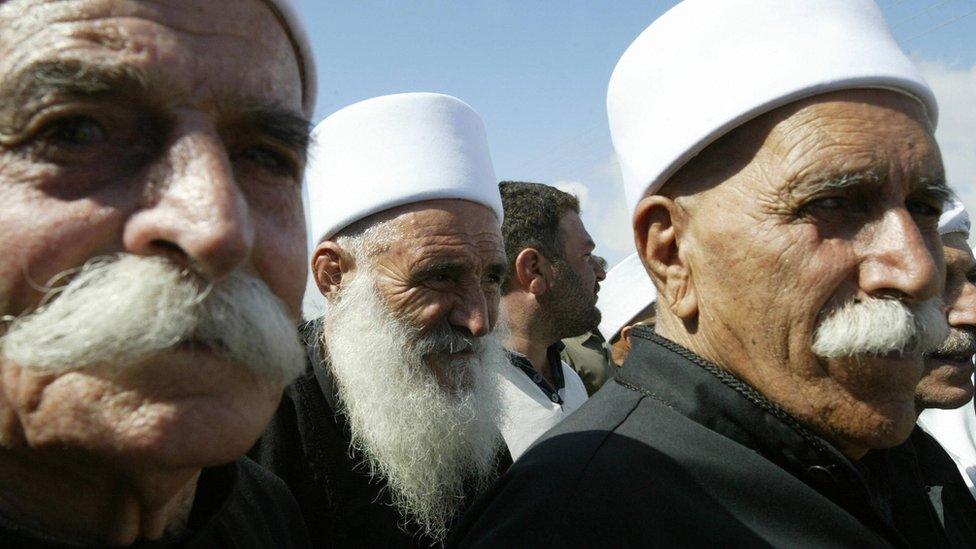
Before the war, Druze made up about 3% of Syria's population of 22.5 million
In 1021, al-Hakim disappeared under mysterious circumstances. Druze believe that he will reappear at the end of time to establish universal justice.
Al-Hakim's successor, al-Zahir, rejected his claim of divinity and persecuted the Druze, forcing them to take refuge in remote mountainous areas, chiefly in Lebanon and Syria.
To avoid persecution, Druze have been secretive about their religion. Only a small number who demonstrate extreme piety and devotion are allowed to participate fully in rituals and have access to scriptures.
And although Druze have played prominent roles in shaping the region's history, they have traditionally been considered political quietists.

Avoiding conscription
For a long time after the war began, most Syrian Druze remained loyal to President Bashar al-Assad - a member of the Shia Alawite sect - fearing that if he was overthrown, minorities would be targeted and communities destroyed by extremists among the country's Sunni majority.
However, they have resisted being drawn into the conflict.
In 2015, Druze leaders declared that members of the sect were no longer obliged to enlist in the Syrian armed forces.
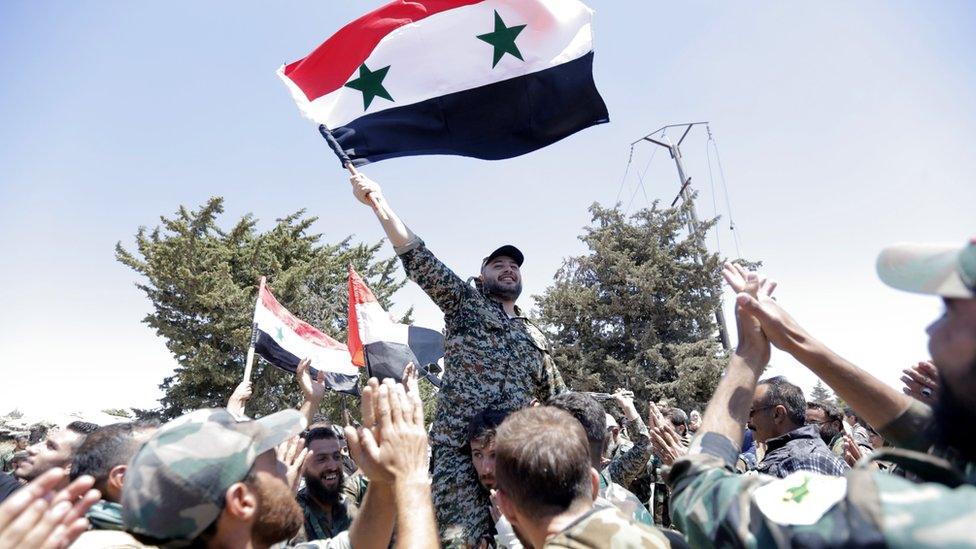
Syrian soldiers have recently retaken large parts of south-western Syria from rebel forces and IS
"That decision not to take either side in the conflict was grudgingly accepted by the regime," said Maha Yahya, director of the Carnegie Middle East Center.
"It had no interest back then in alienating yet another community. The last thing it needed was to see yet another community taking up arms against it."
It is estimated that 35,000 young Druze men have not signed up for military service. A large majority of them have fled Syria.
This might explain the lack of resistance the IS militants - who consider the Druze to be heretics - encountered when they attacked Suweida.
'Slaughter'
Mr Abu Ammar recounted the details of what happened on 25 July as they were relayed to him by members of his community there.
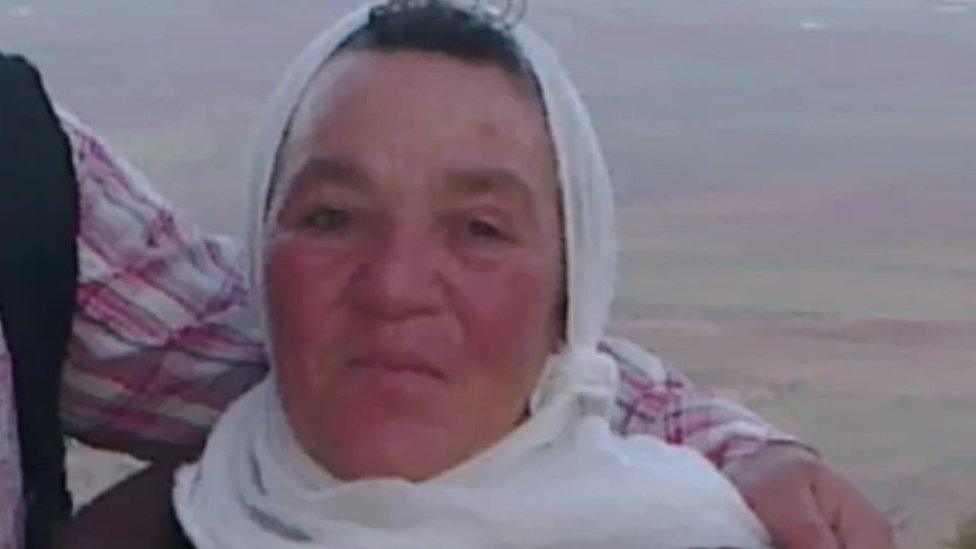
Fareez Abu Ammar's mother, Ghoson, died after being kidnapped by IS
"It all started at around 03:30. [The militants] knocked on doors and called the owners of the houses by their names, which made people think that whoever was knocking on their door knew them," he said.
"This is why people opened their doors and how IS fighters entered their homes and killed them.
"In a matter of two-and-a-half hours they had committed all sorts of ugly and horrific crimes against children and civilians."
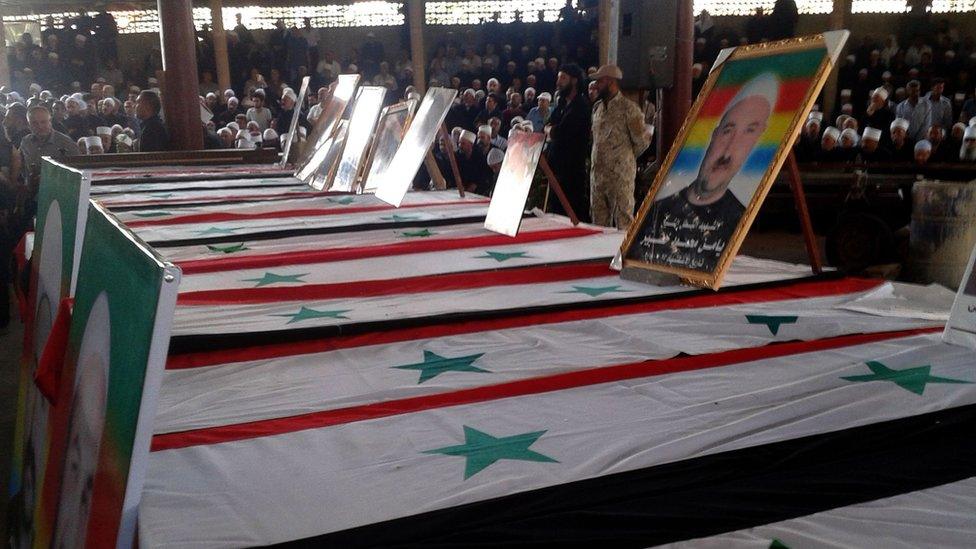
More than 200 people were killed in the attacks on the night of 25 July
Mr Abu Ammar did not lose his composure as he described the events. His voice was steady and calm.
"They entered houses and slaughtered the parents in front of their children. Then they slaughtered the children, leaving only one child alive so he could tell people about what happened," he said.
"The kids who were later found alive were in a horrible and traumatic state."
Suicide bombings
The attack sent shockwaves across Syria and beyond.
It was the first assault on this scale by IS since the group lost control last October of the northern city of Raqqa, the de facto capital of the "caliphate" stretching across Syria and Iraq whose establishment it proclaimed in 2014.
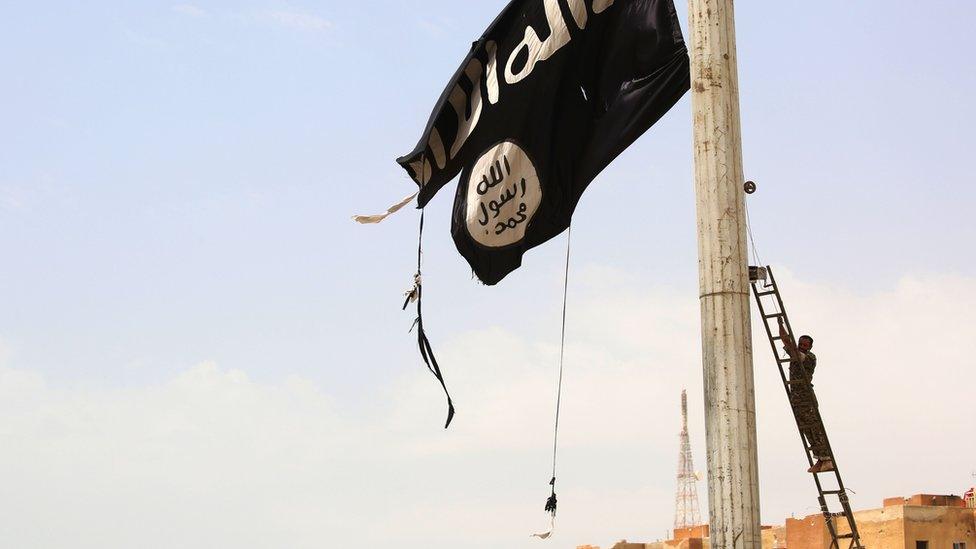
IS has been driven from almost all of the territory it once controlled in Syria and Iraq
"IS has been substantially weakened as an organisation, but the root causes of why this organisation emerged have not been addressed," Dr Yahya said.
"We may see IS emerging in a different form, or we may see a continuation of it as no longer a territorially-coherent caliphate but more operating on the model of al-Qaeda," he added.
In parallel to the door-to-door attacks in the villages on 25 July, IS members carried out several suicide bombings in the centre of Suweida city.
It is not clear if the bombings were intended to serve as a diversion, but they delayed the arrival of security personnel in the villages.
Many questions
But many in Suweida speak of other factors that they believe facilitated the IS operation.
The residents we spoke to stopped short of accusing the Syrian government and its allies of any collusion.
But they pointed out many circumstantial factors surrounding the attack.
First, they noted that the IS members who were responsible for the attack had left the Yarmouk Palestinian refugee camp in the capital Damascus only a few weeks earlier as part of a surrender agreement with the government.
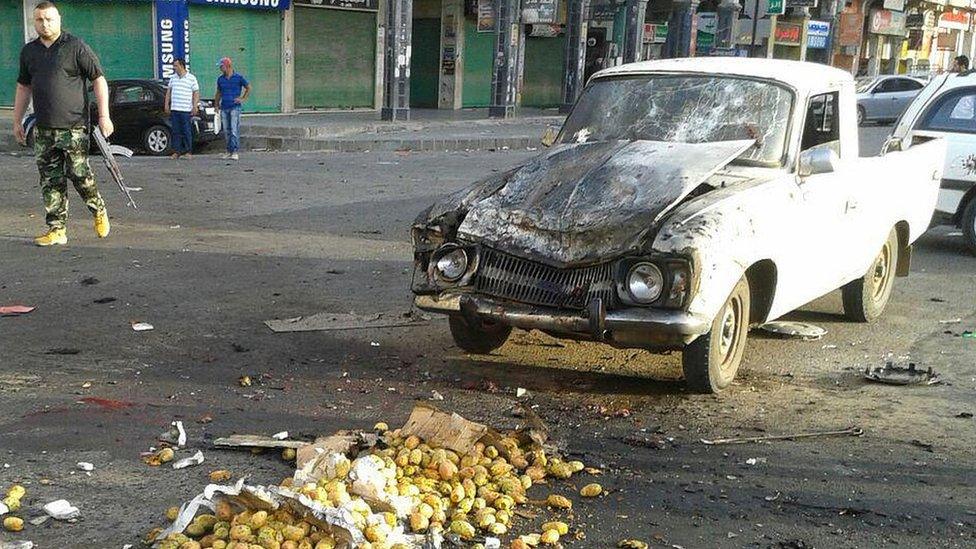
Images of the aftermath of the attacks were broadcast by state media
They had been involved in intense battles against the Syrian army in Yarmouk and were transferred to a desert area just 50km (30 miles) from the attacked villages.
Also, many residents said there had been power cuts in the villages before and during the attacks.
On top of this, Syrian security forces did not reach the targeted villages for several hours.
"The regime forces could have stepped in to prevent the attack or at least mitigate it once it happened," Dr Yahya said.
"It's very easy for people to see this as a payback for them having not sided with the regime or for their attempt to take a neutral position in the conflict."
Little hope
Syrian state media said the military had battled the militants with both ground forces and air strikes.
Days after the attack, the Syrian army launched an offensive against IS in the desert in north-eastern Suweida province.
State media report that they have made advances. But many in Suweida have little hope about the fate of those kidnapped.
"I place my hope only in the sons of Suweida, the men of the Druze community," said Mr Abu Ammar.
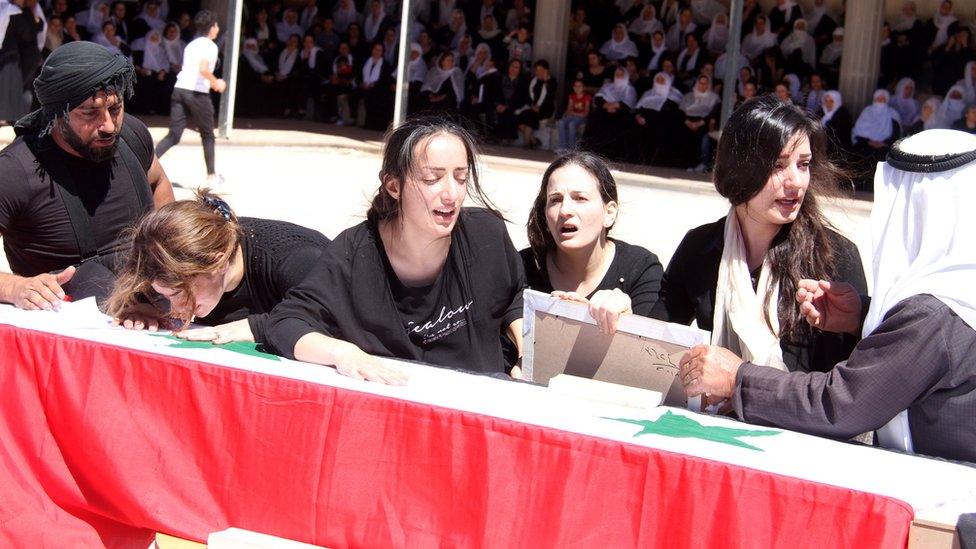
A Lebanese Druze leader has attacked Syria's government for failing to stop the massacre
He talked of efforts to rally local forces to rescue the women and children being held hostage.
There are claims that they have already captured dozens of IS militants.
In one recent video circulated on social media, a man thought to be an IS fighter is seen being lynched in the town centre.
"For us Druze, honour and land cannot be compromised and must be defended no matter what," Mr Abu Ammar said.
- Published30 July 2018
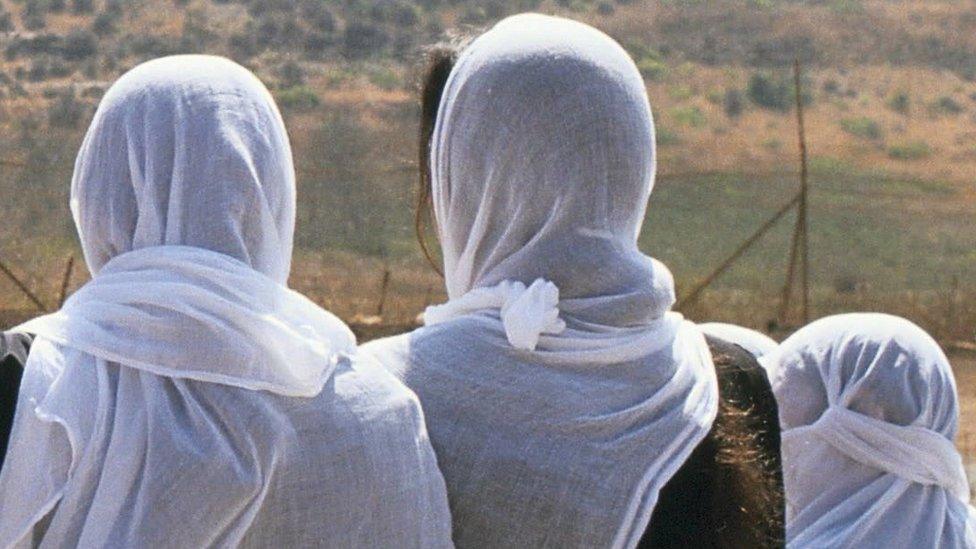
- Published25 July 2018
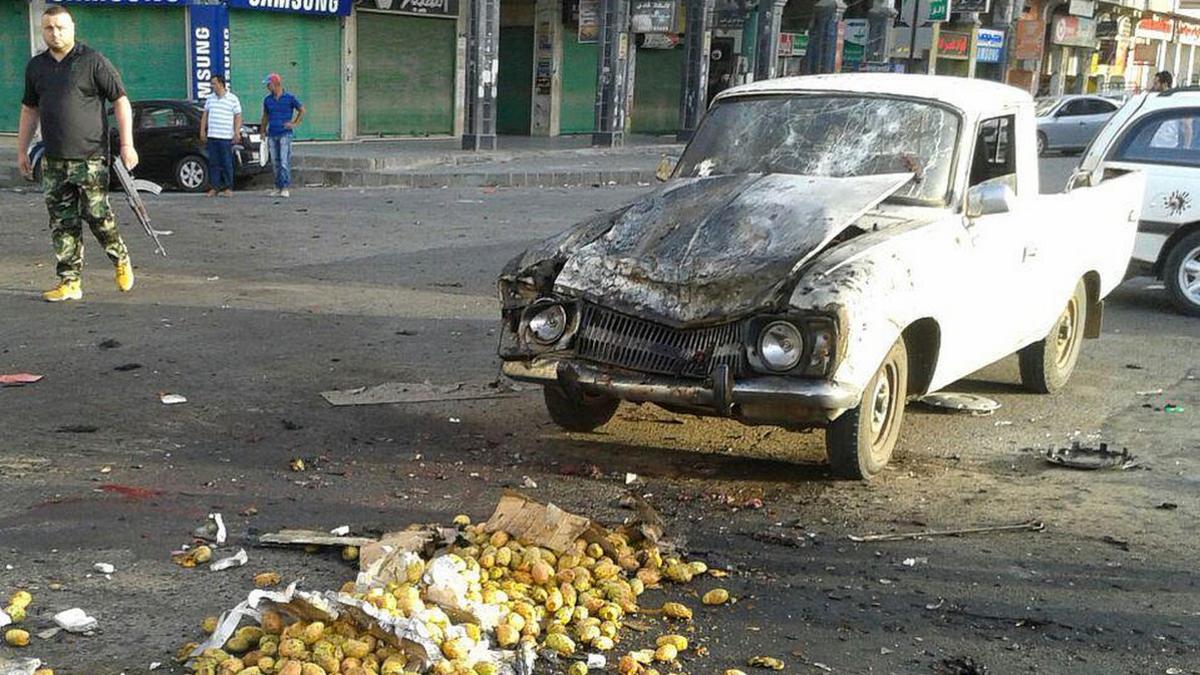
- Published2 May 2023
